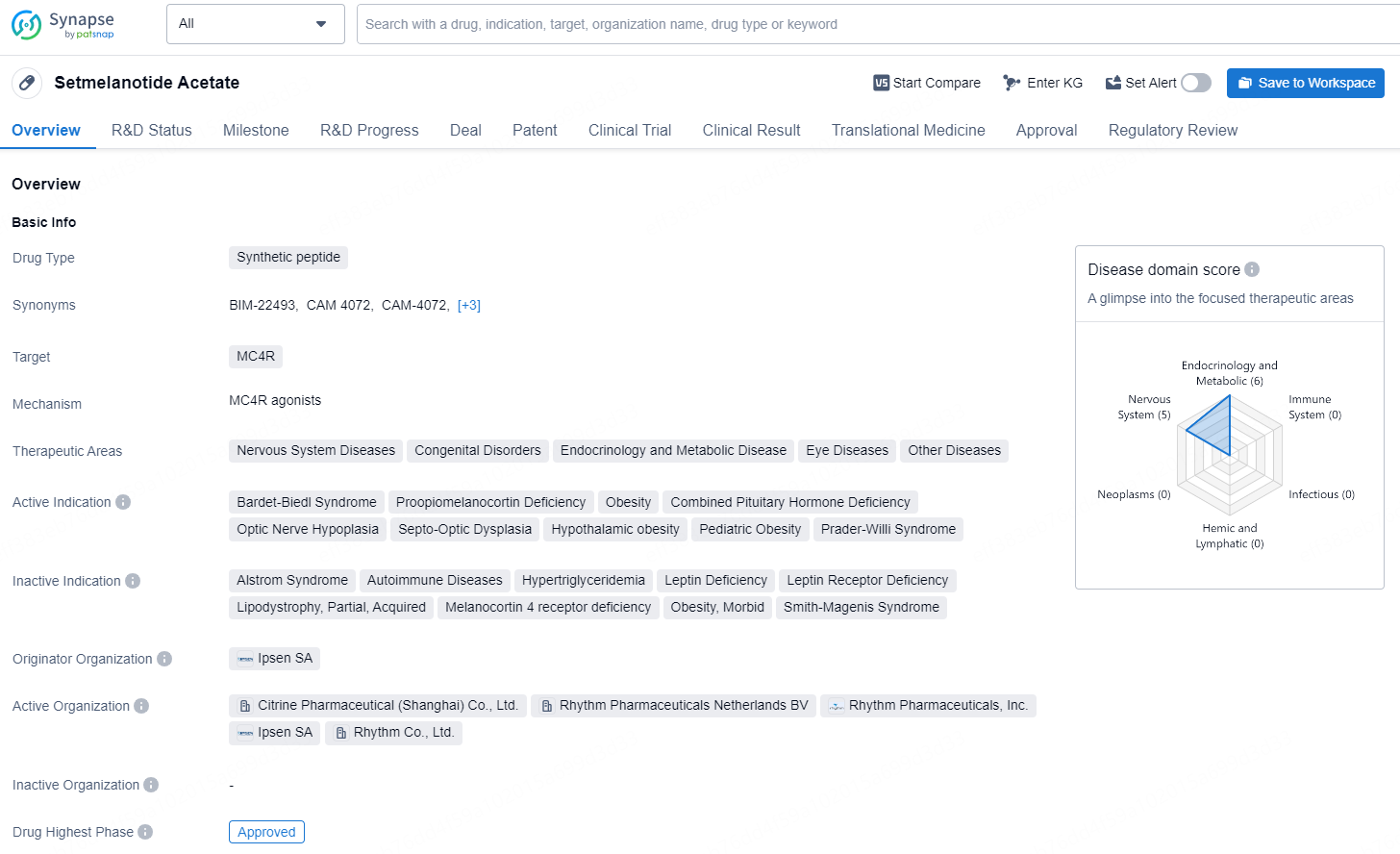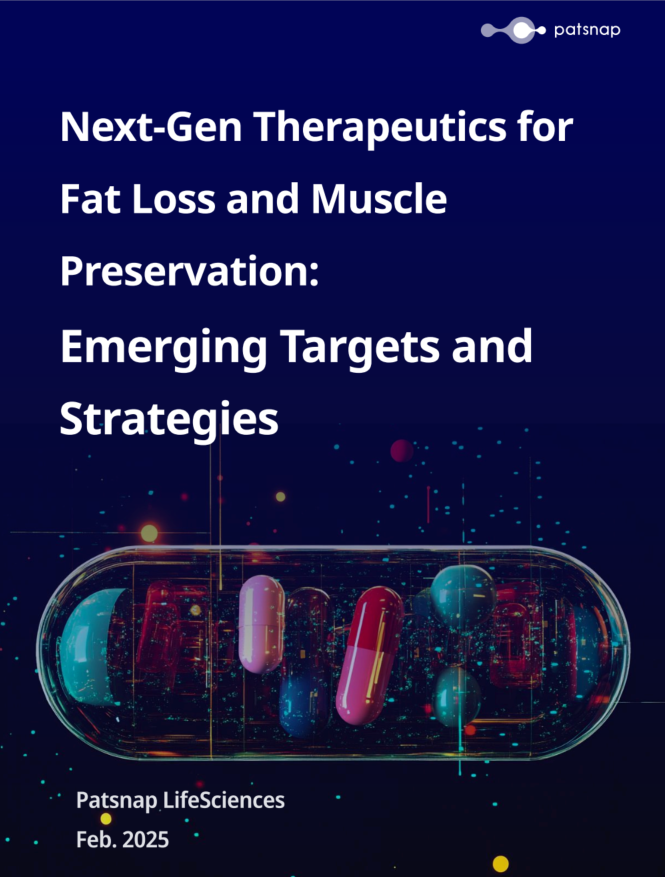Advancing Obesity Treatment: Mechanisms, Drugs in Development, and Clinical Prospects
Beyond the drugs targeting specific pathways like the Activin - ActRII - ActRI pathway, there are other medications being developed for obesity and muscle - wasting disorders. This article focuses on drugs for obesity treatment, exploring their mechanisms, development status, and potential in the fight against obesity.
By conducting advanced searches in the Synapse for obesity as an indication and filtering drugs based on clinical stages, while excluding targets mentioned earlier, GLP/GIP/GCGR - related drugs, traditional Chinese medicine, and those with unknown targets, a list of 115 drug candidates was initially identified. Further filtering for drugs with ongoing transactions resulted in 27 candidates for further analysis.
Among the identified drugs, three have been approved for obesity treatment. Setmelanotide Acetate, a synthetic peptide targeting MC4R, is used for conditions like Bardet - Biedl Syndrome, Proopiomelanocortin Deficiency, and obesity. Deoxycholic Acid, a small molecule targeting GPCR, is approved for localized obesity. Bremelanotide Acetate, also a synthetic peptide targeting MC4R, has an approved indication for obesity along with sexual dysfunctions and diabetic nephropathies. Azelaprag, an oral apelin receptor agonist developed by BioAge, shows promise in enhancing weight loss when combined with incretin - based drugs. It synergizes well with GLP - 1 medications, promoting weight reduction while maintaining muscle mass.
The development of drugs for obesity treatment is a diverse field with a range of targets and mechanisms. Approved drugs and those in clinical development offer hope for more effective and personalized obesity treatments. Further research and development in this area are crucial for addressing the global obesity epidemic.
For more information, please click the image link below to access the full report.





